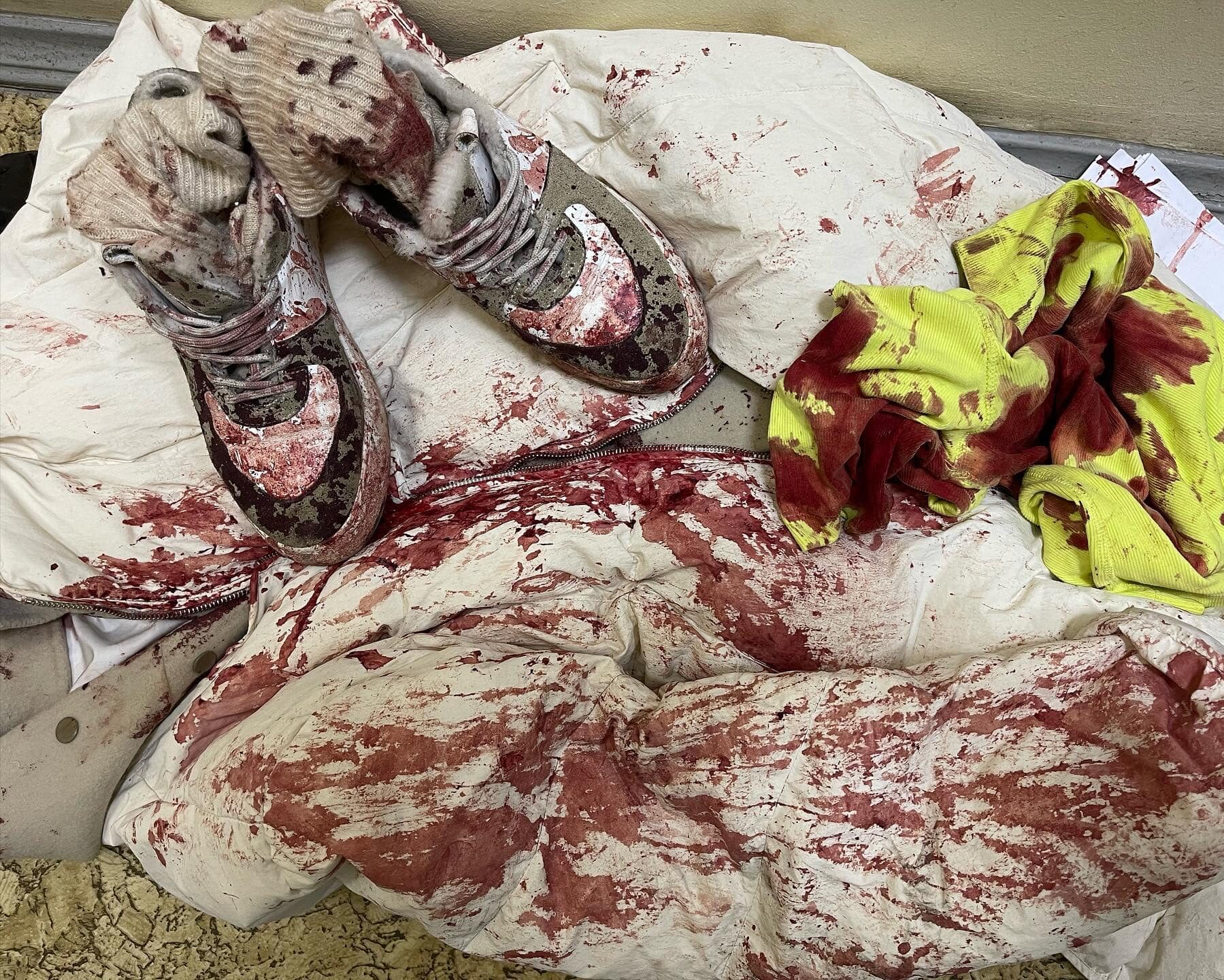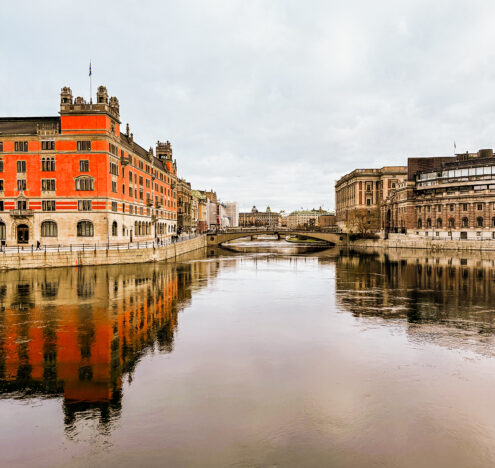“Some of our neighbors survived, but most of them died,” said Olha, “They lived on the lower levels where everything was destroyed.” Olha Botvinova survived a deadly attack on a residential building in Dnipro, Eastern Ukraine on Jan. 14, when Russians launched a missile attack against the city. One of the missiles hit Olha’s building killing 46 residents including six children.
“Everything was burning, everything was full of smoke,” Olha remembered, “Explosions continued, and we heard many screams. People screamed really loud at first, but soon, there were fewer and fewer voices.”
It was because she was with her husband, a surgeon, that Olha survived. He managed to slow her bleeding while the couple waited more than three hours in the nearly destroyed building before rescuers finally got to them.
“It was like a second birth,” Olha said, of emerging from the destruction.
Escaping the “Russian World”
Olha and her husband, Yevhen, are originally from Donetsk, which was once one of the biggest cities in Eastern Ukraine with nearly a million residents. Olha worked there as a bank manager, and Yevhen worked as a surgeon in a local clinic.
In 2014, however, things changed for the family. That spring, Russia annexed the Crimean peninsula in Ukraine and launched a war in Donbas, which affected the city of Donetsk and nearby areas. Russia-affiliated proxies proclaimed a so-called Donetsk People’s Republic effectively separating the region from the rest of Ukraine.
“We decided to leave and moved to Kherson,” said Yevhen, “I found a job there, and Olha started working as a trainer for entrepreneurs. She was always interested in psychology.”
The couple lived in Kherson for eight years. The city is in Southern Ukraine, close to the Crimean Peninsula. It was the first and only regional capital that Russia managed to occupy since the start of its full-scale invasion of Ukraine in 2022.
So the couple had to flee again.
“When Russians occupied Kherson, I managed to evacuate Olha right away,” Yevhen recalled, “I drove her to Dnipro and returned home to help people. But quickly, Russians started putting a lot of pressure on the hospital. They were forcing us to sign documents that we were now working in Russia. We were also supposed to start using Russian money. Of course, I was against that, so I left for good.”
The escape was difficult.
“I had to sleep in the fields to leave the occupied area,” the man said, “It took a long night to pass the Russian-controlled area.”
When Yevhen finally reached Dnipro, he started to work there as a surgeon. Olha was already settled in the city. In June, the couple rented out a one-bedroom apartment in a residential area in Dnipro.
It was that apartment that was hit on Jan. 14.
Surviving the Attack
“It was Saturday, a day off, but I had to work,” Yevhen recalled, “I got home after work, and Olha was just finishing her stuff. I felt good, happy even, and I didn’t expect anything bad to happen so soon.”
On that day, their building had little electricity, so it started getting cold. Olha was annoyed because she could not work as her internet was too weak. She could not even call her team to finish a work call.
“I remember Yevhen calling me to the living room,” the woman said, “He was under the blanket on the coach, and he wanted me to come and rest with him. Ten minutes before the attack I got under the blanket and hugged him really tight.”
The next thing the couple remembers were explosions.
“I could not be happy to be alive because I knew so many people died.”
“When the missile hit, I saw how the window frame flew over me,” Yevhen said, “It hit the other side of the room. Glass, walls, and rubble: all started falling on us.”
The man remembers: he had no panic. He checked on his wife: she had an injury and was bleeding from her temple.
“There was a lot of blood, and it looked bad, but I am a surgeon, and I saw that it was not too deep,” Yevhen said, “I made some bandages and pressed on the wound to reduce bleeding.”
The couple had an emergency suitcase for crisis situations. They worried that there would be new explosions and so they wanted to leave the building right away.
“When we tried to exit the apartment, we saw that there were no more stairs, and everything was too damaged to go down,” Yevhen said, “So we decided to stay where we were. I knew that if the kitchen floor would hold, then the rescuers would get to us.”
“We sat on the kitchen floor for three hours,” Olha recalled, “My husband would come to what used to be the window and send light signals with a flashlight. He was showing that we were still here and that we were alive.”
The rescuers managed to get the couple out of the building. Olha lost consciousness on her way to the hospital.
“I woke up already in the clinic,” the woman recalled, “The doctor told me that we were blessed to have survived that attack. There were many of our neighbors in that hospital, some of them died, and some of them survived. It was very hard.”
“My fight thought when I woke up was: Thank God that we’re alive,” Olha continued, “I was crying and in shock. My body was shaking. But the next day, it was very different. I could not be happy to be alive because I knew so many people died.”
The couple spent ten days in the hospital and had to go through rehabilitation.
While in the hospital, Olha and Yevhen learned that their apartment in Kherson was also destroyed. On Jan. 15, a day after the deadly attack on Dnipro, Russia launched an attack on residential areas in Kherson.
Despite that, the couple remained optimistic.
“The most important thing is that we’re alive,” Yevhen said.
“I want us to improve our health and return back to our community,” Olha concluded, “I want to be useful to people and work toward victory.”
All photos courtesy of Olha Botvinova, Jan. 14, 2023.
Cover image: Olha’s clothes after the attack.





















